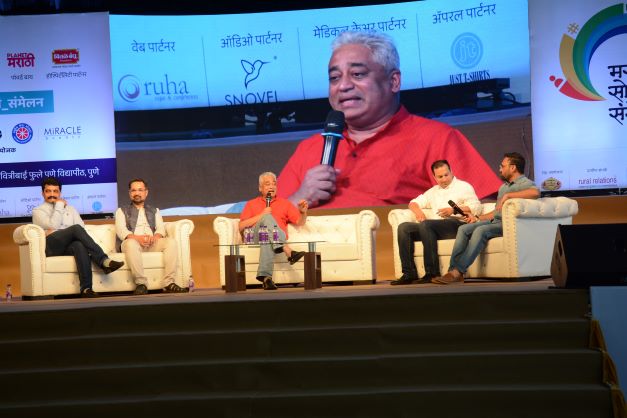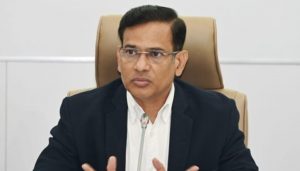Pune: ‘In The Age Of Social Media, Audience Must Take The Responsibility’

The panellists were Ashish Dixit, editor, BBC Marathi, Prasanna Joshi, SAM TV, Editor, Rajdeep Sardesai, Senior Journalist, Abhijit Kamble, Maharashtra Times, Digital Editor. The discussion was conducted by Mayuresh Konnur, journalist, BBC Marathi. The entire discussion revolved around what are the challenges faced by the News Media and Journalists in the age of social media. How do journalists deal with social media practices such as fake news, trolling and spreading hate across the platforms?
While speaking about the responsibility of the journalists, Sardesai said that even during the social media age, it is necessary for journalists to be objective. He said, “India is a plural heterogeneous country. In such a country you cannot fear trends and trolling. You need to keep doing the new objectively even in the polarised world.” He further emphasised on the lack of gatekeeping on the social media platforms. “There are no fact-checkers on twitter or Facebook. The Fake news industry has emerged and every one of us is falling victim to it. Accountability is a must and it must come on these platforms through policy,” said Sardesai.
Joshi further added to the discussion accountability by highlighting the role of the audience when it comes to the news content that they want to consume. “Today, the entire social situation has become subjective, it is going to have an effect on the objective news. I believe the audience has a huge responsibility because all the meaningful programmes get very low TRP and that also drives the content agenda. We need to figure out this complex situation and strike a balance,” said Joshi.
Ashish Dixit added to the discussion of how news has changed in the social media age by pointing out the rising importance of emotions. He said, “In digital media, emotions have immense importance. FB, Instagram and YouTube have algorithms that promote angry and emotionally driven content and that is also expected from the news as well. This is a problem because news has to be objective and should not be influenced by emotions.”
Kamble, narrating his newsroom experiences, pointed out that now social media trends drive the traditional media. “In the crisis situation such as untimely rains in Marathwada that caused a lot of damage was first reported on social media and then taken up by the traditional media. So there are some positive effects as well. We have to accept it as a platform as a whole. We must keep criticising the bad and accept what is good,” he said.





